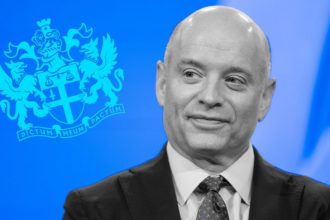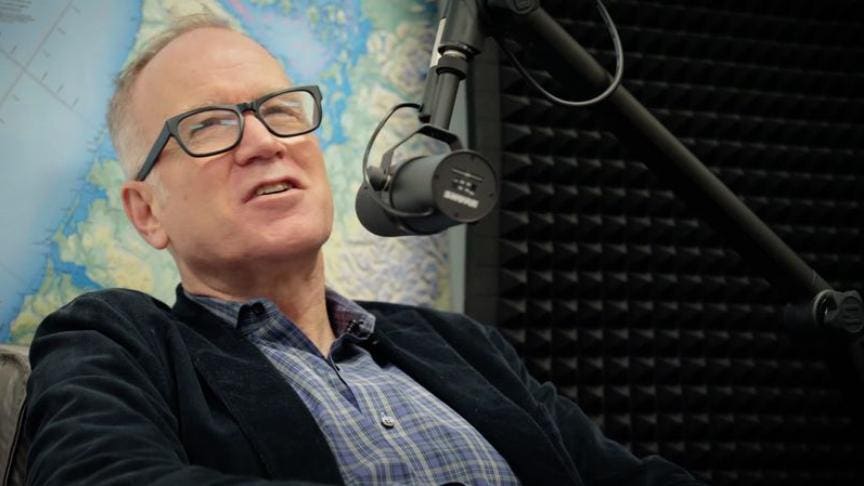In a Harvard Business Review article, leadership experts Rasmus Hougaard and Jacqueline Carter tell a story about Cees’t Hart’s first day on the job as CEO of Carlsberg Group. He was given an elevator key card for an express ride to his office on the 20th floor with its beautiful views of Copenhagen.
At first, Hart enjoyed the privileged elevator perk, but after a couple of months, he discovered that he rarely got a chance to cross paths with the many people who ultimately reported to him, including the mail room clerks, clerical staff and middle managers.
The isolation took its toll, so he moved from his top-floor corner office with its stunning panoramas down to an empty desk in an open-floor-plan office on a lower floor. “If I don’t meet people, I won’t know what they think. And if I don’t have my finger on the pulse of the organization, I can’t lead effectively,” he said.
Listening Takes Discipline
Being a good listener is a super-power of super leaders and research has shown it is tied directly with executive effectiveness and improved business performance. McKinsey calls it a “learning agenda” where executives spend more time “listening, learning and connecting the dots,” instead of focusing most of their energy on articulating and presenting their ideas, i.e. talking.
“Good listening – the active and disciplined activity of probing and challenging the information garnered from others to improve its quality and quantity – is the key to building a base of knowledge that generates fresh insights and ideas,” former McKinsey director Bernard Ferrari wrote. “Listening is a valuable skill that most executives spend little time cultivating.”
The keyword above is discipline. New executives and established ones who take on new responsibilities typically implement a learning agenda to get the lay of the land, but it’s a short term project, not a daily process. After the project is complete, they often retreat to their corner office where the only people they need to listen to are their direct reports and who knows how well they are listening either?
On a day-to-day basis, it’s all too easy for senior executives to get caught up putting out the fires, instead of preventing them in the first place. Developing an active listening and learning process that covers all the constituencies on which the business depends is a critical business fire-prevention strategy. It also feeds into innovation, since good ideas can come from anywhere.
That is what Pete Nordstrom
JWN
What started as a passion project without any clearly defined goals, other than to test the newly emerging podcast vehicle as a way to engage with the company’s more than 30 million customers beyond just selling them something, has become a vital tool for Pete to stay in touch, listen and learn. It’s made him a more effective leader of the company’s 60,000 employees and a better steward of the brand.
And the best part: it is forced discipline; the show must go on!
“Too often, we mistake leadership for being directive. We’ve got to catch ourselves and be open and willing to listen by engaging with all kinds of people,” he shared with me.
“You need to get input from people that aren’t part of the ‘echo chamber,’ coming from their silos and keeping you in one. You need the stimulus from all the things that are going on in the culture to evolve the business and to get new ideas,” he continued.
More Than 50 Nordy Pods In The Bag
Pete hosts roughly two podcasts per month and draws from a wide range of people to appear, the wider the better. “We didn’t have any particular end game that we were trying to accomplish other than to listen and learn what people care about. It works because it’s real people having a real conversation,” Pete said.
Starting out, he was concerned about finding interesting people to invite on the show, so the formula he used was to reach out to people he knew who’d be willing to make an appearance or to connect him with others who’d be interested in talking with him. It turns out, he’s had plenty of takers.
And rather than preparing a script of questions, he lets the conversations flow organically. “If I’m too prepared, too scripted, it doesn’t come off as well. I’m not a professional interviewer, but if you’re really listening to somebody, conversations are easy. I start with a theme as a catalyst starter and go from there.”
About half of his featured guests have been business leaders and Nordstrom business partners, like Mickey Drexler, Anna Wintour, Rick Caruso, Leonard Lauder, Bonobos’ Andy Dunn, Allbird’s Joey Zwillinger and Vuori’s Joe Kudla.
Other guests are drawn from the sports and entertainment worlds, including NBA announcer Kevin Calabro, NBA legend Bob Love (and former Nordstrom employee), hip-hop artist Macklemore, singer Chris Ballew, WNBA champ Sue Bird, and Jessica Alba speaking as both a celebrity and an entrepreneur.
The key to success of the podcast is to share an interest with his guests and to be interested in them. The podcast has a listener score of 4.9 out of five stars.
“I’m fascinated by creative people, like entrepreneurs, musicians, entertainers and people who excel in sports. They are the ultimate creatives, creating something meaningful,” he said.
Harder To Hear, More Important To Listen
For Pete, interviewing the featured guests is the fun stuff but more important from a business point of view are what he gathers from the customers and employees that also appear on the show. “At the end of every show, I invite listeners to write or call in with feedback. People will say a lot of nice things, but we also get complaints.”
And he’s not afraid to air the dirty laundry. For example, he got a complaint from a woman who used to work for Nordstrom. She complained that things were not as good at the store as they used to be when she worked there.
“I asked her to come on the show and she did. I had to catch myself not to defend or rationalize any mistakes we made, but to actually listen and see what we can learn from it,” he said. “It was hard to hear but helpful and constructive for us to get the unvarnished truth and she felt better after we talked.”
On the plus side, people will share stories about how the company went above and beyond, providing equally important feedback.
“There never is a playbook for everything that comes up. So it helps us all to learn from people who take it upon themselves to create a solution that isn’t written down in the rulebook,” he explained.
Lessons Learned
“Our overall goal as a company is to make customers feel good and look their best,” Pete shared. His regular podcasts have helped him and the entire organization do a better job at that.
“Inspiration can come from all kinds of different places. If you’re going to be successful in business, you have to keep learning. In my daily work world, I’ve got to weigh in on things and have opinions, but hubris is not your friend; you can’t pretend you got it all figured out.
“The best thing the podcast has done for me is train me to be a better listener. It’s been gratifying and humbling. It creates a connection point where people feel like Nordstrom is a place they can have an emotional connection to. The podcast helps build that,” he concluded.
Business leaders can learn a lot from the content in the Nordy Pod podcast but they can learn even more by the example Pete Nordstrom sets in putting his listen and learn philosophy into practice.
See also:
Read the full article here





